Last weekend the Bay Area Bonsai Associates, affectionately known as BABA, held their 40th Anniversary exhibition at the Lakeside Garden Center in Oakland, California.
Below are some of the trees on display with brief notes about what made them good choices for the exhibit.
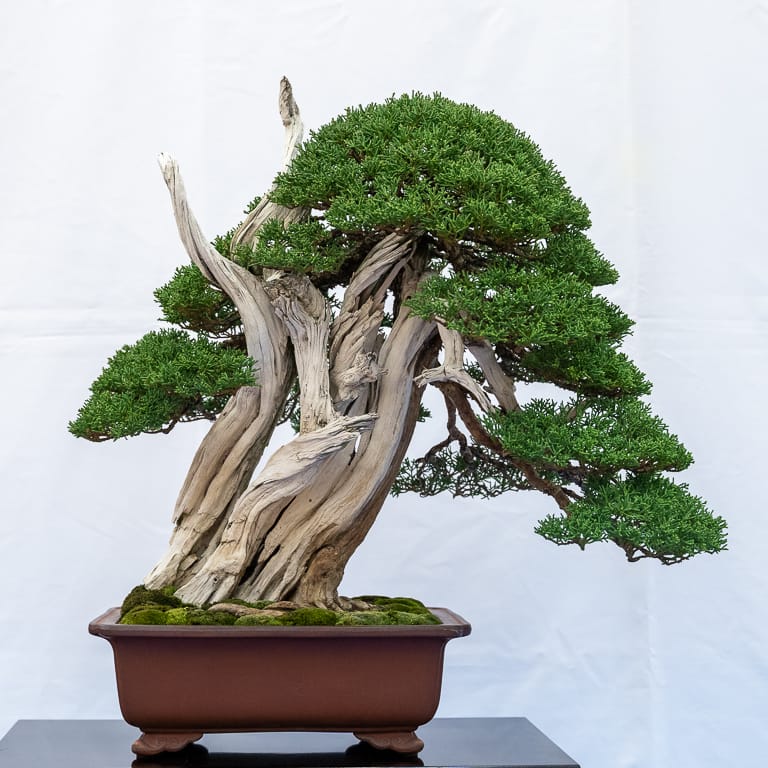
Shimpaku juniper
The juniper above is a great example of a tree that’s ready for an exhibit. The silhouette is full and meticulously arranged. The deadwood is clean, the pot is a good match for the tree, and the surface of the soil has been carefully mossed. Above all, the balance between the foliage, the trunk, and the pot is great.
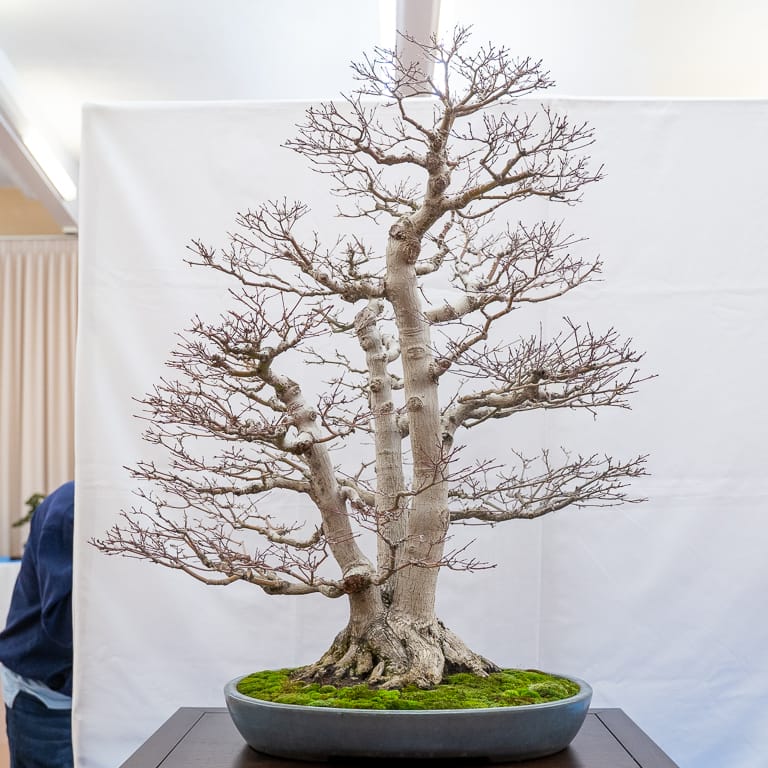
The Japanese maple above is a good example of what we look for in large, multi-trunk deciduous bonsai. There is an odd number of trunks that are different sizes, branches at different levels spread around the trunks that create a full silhouette, and plenty of fine twigs that give the tree a full appearance – not an easy feat with Japanese maples!
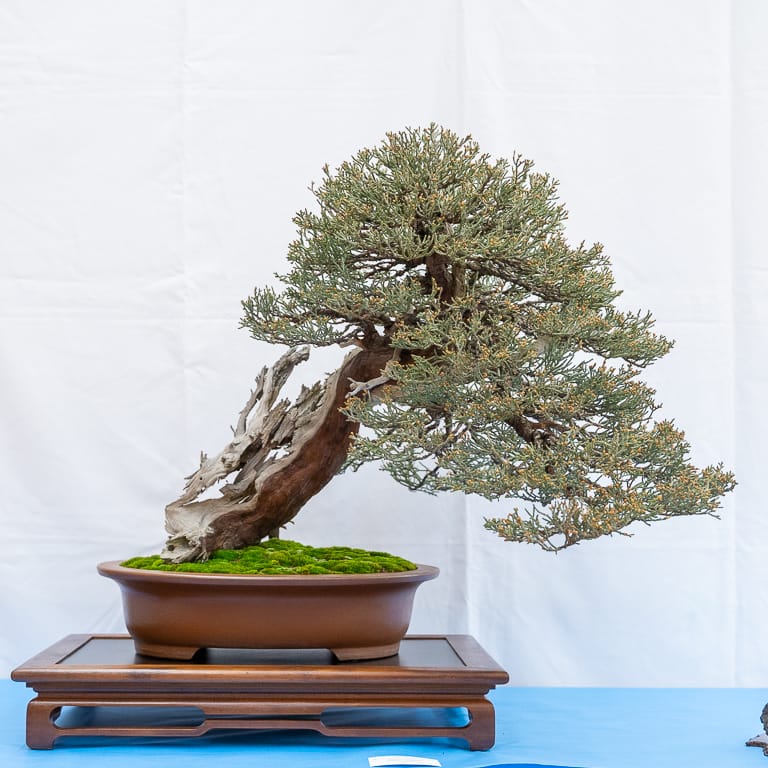
Sierra juniper
The Sierra juniper above shows what we can do with our domestic bonsai material – display deadwood that shows great age, a sinuous lifeline, and a full silhouette of pale blue-green foliage.
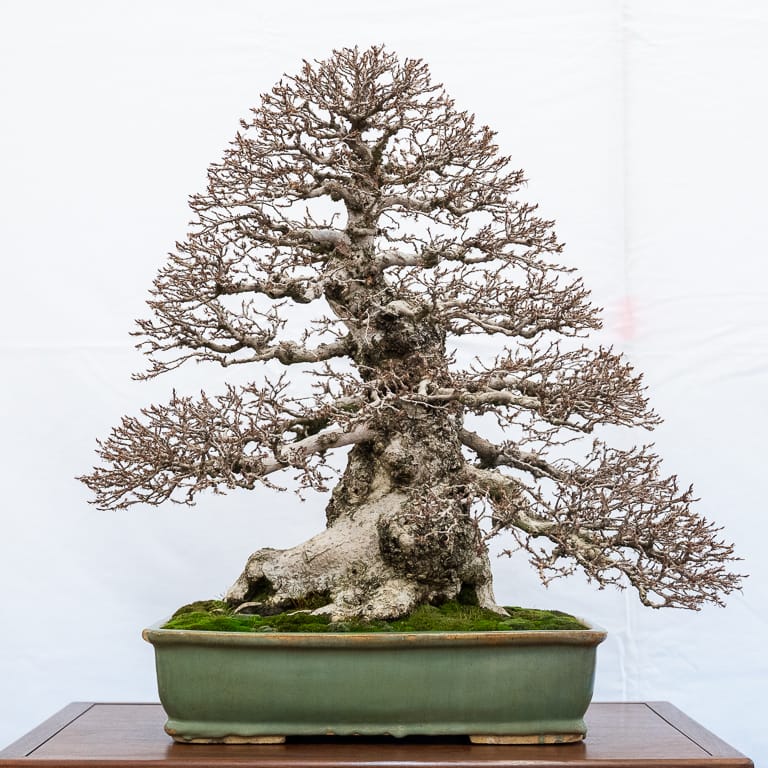
Hornbeam are known for being relatively easy to create dense foliage. As a result, we have high expectations for how dense the twigs grow on mature specimens. This tree shows just how dense we’re aiming for with hornbeam bonsai.
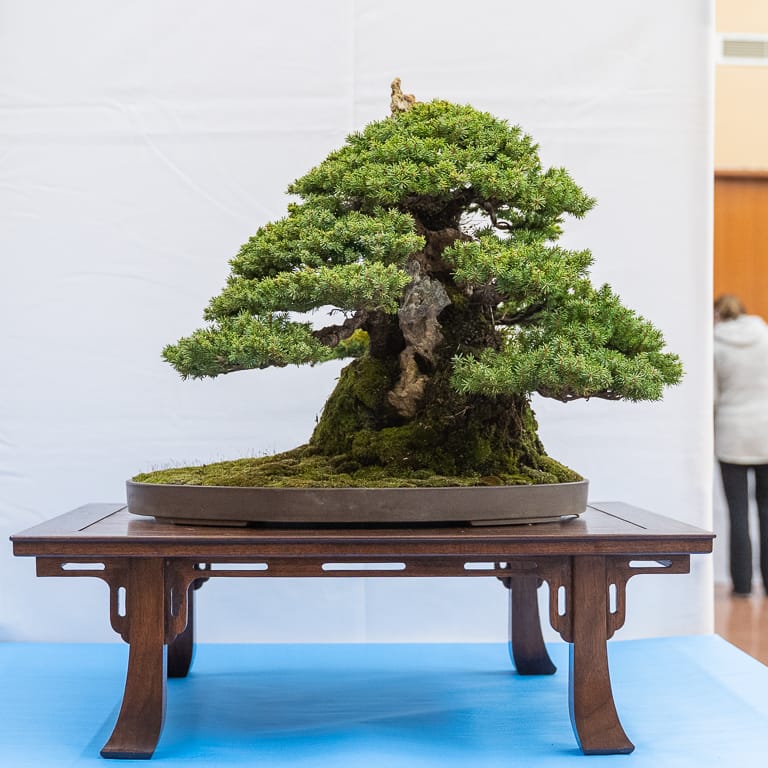
Root over rock ezo spruce
There aren’t many ezo in Northern California so I’m always impressed when I see full and healthy specimens like the tree above. It’s equally rare to find mature conifers growing over rocks. This tree checks both boxes and makes for a good contrast to more common coniferous species.
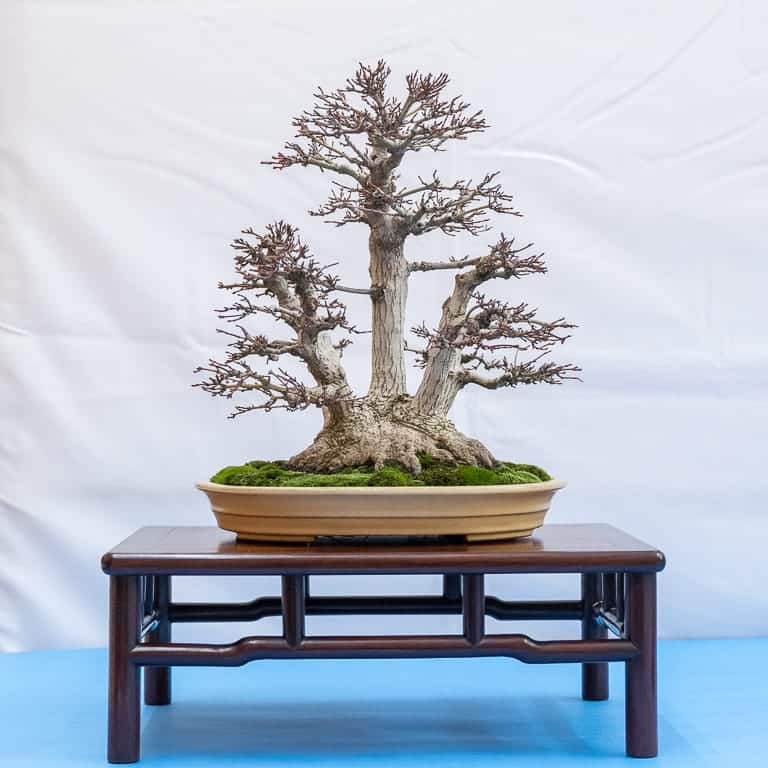
Japanese maple
The multi-trunk Japanese maple above is a great tree to have on hand for medium displays. Whether it’s the main tree or the second tree, smaller deciduous bonsai with multiple trunks can provide good contrast to conifers or broadleaf evergreen specimens in three-point displays.

Olive
Olives are a malleable species. As such, when we judge the silhouette we’re judging artistic decisions made by the grower. It’s rare to find such a stout trunk on such a short tree and the silhouette does a great job of balancing the visual weight of the trunk.
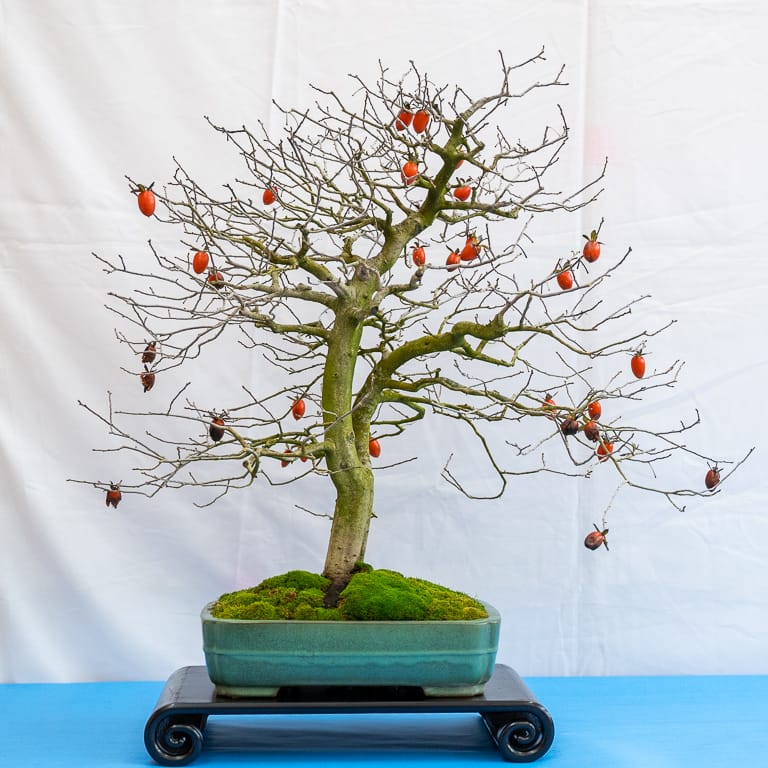
Princess persimmon
It’s a treat to see fruit in shows featuring bonsai in their winter silhouette. Were it earlier in the dormant season I’d expect to see more fruit, but since spring is right around the corner this tree does a good job of conveying the time of year.
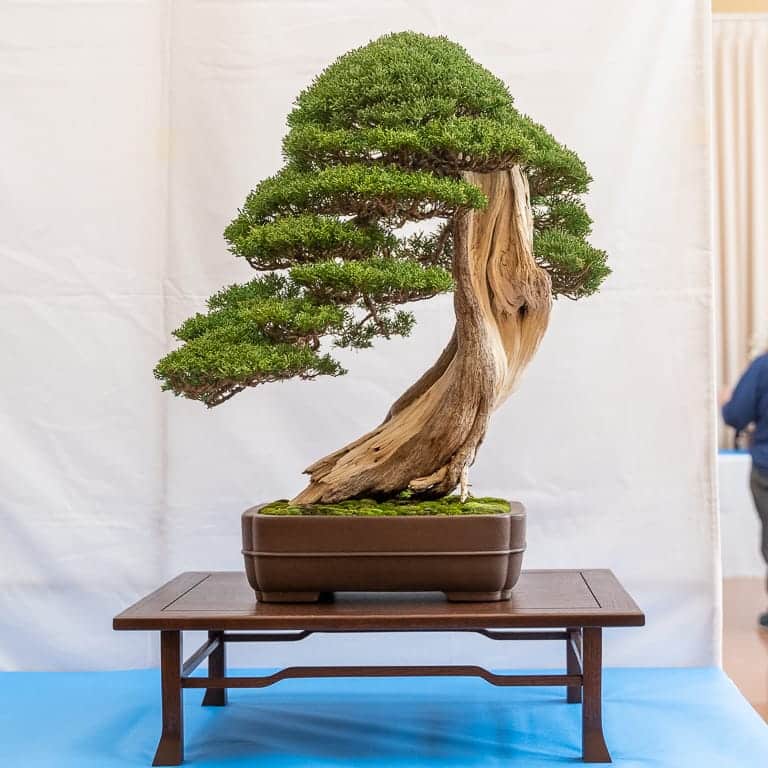
Shimpaku juniper
Everything I noted about the shimpaku juniper above applies here. My favorite aspect of the tree is the relationship between the gentle movement of the trunk and the descending foliage that moves to the left.
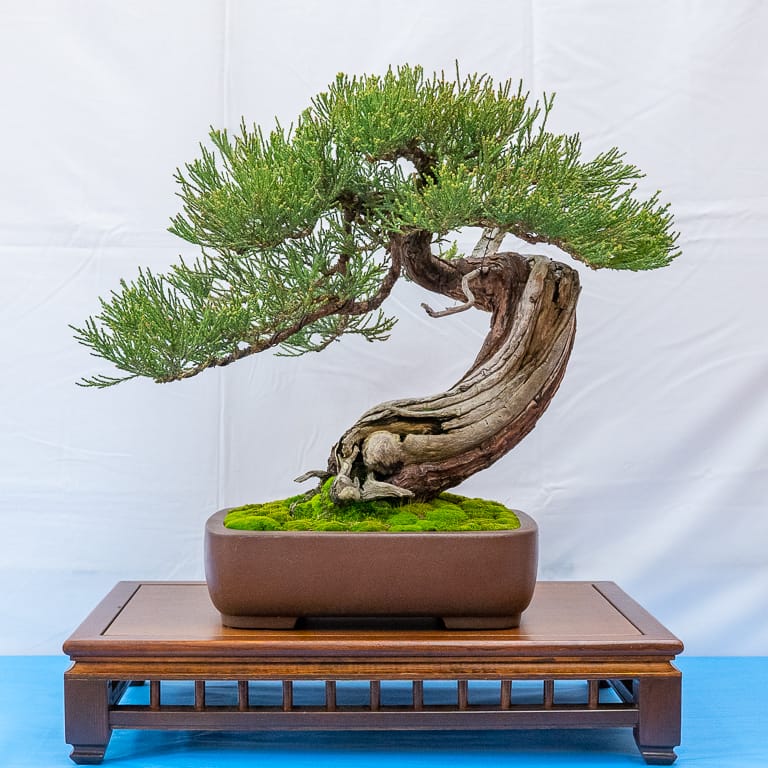
Giant sequoia
When is the last time you saw a giant sequoia in a bonsai exhibit? it’s tricky to create dense silhouettes with this species. Hats off to Rick for pulling off what so many try to do – portray a giant species in the form of a bonsai!
✕
Subscribe to Indian Bonsai Art
New Posts Delivered Every Tuesday and Friday
Reader Interactions
This site uses Akismet to reduce spam. Learn how your comment data is processed.
